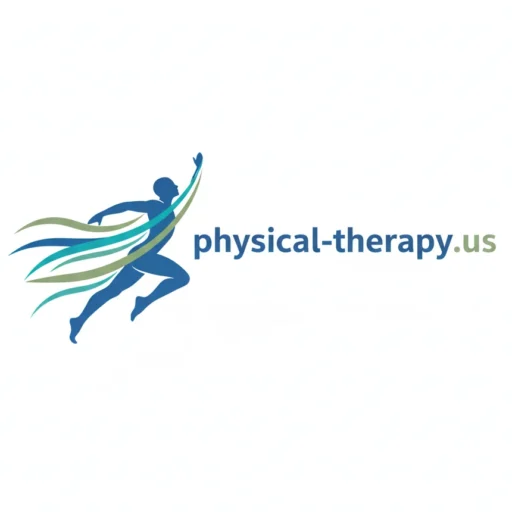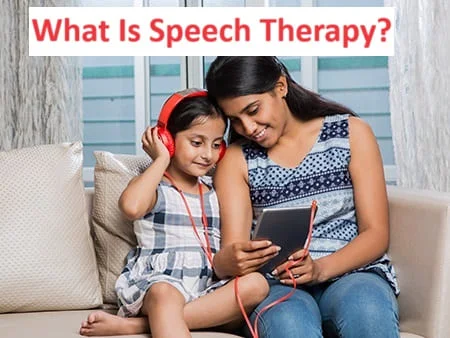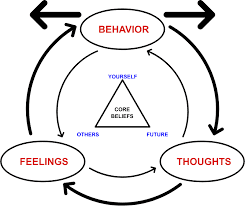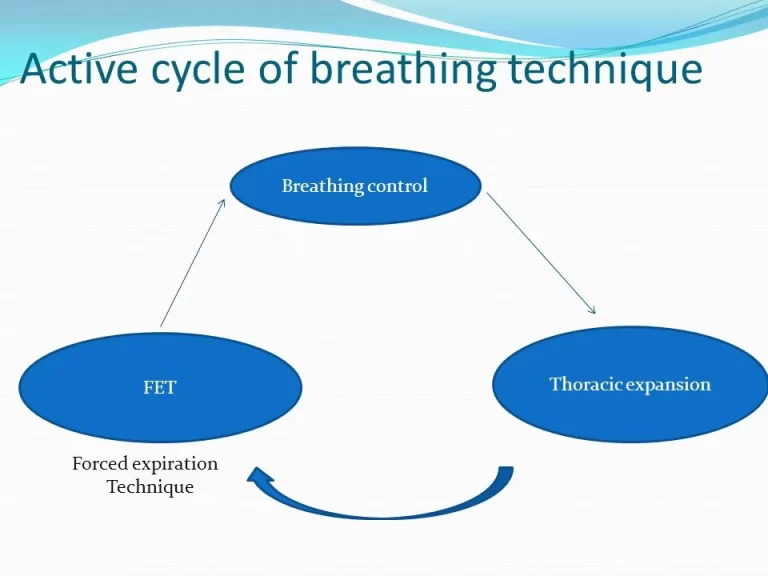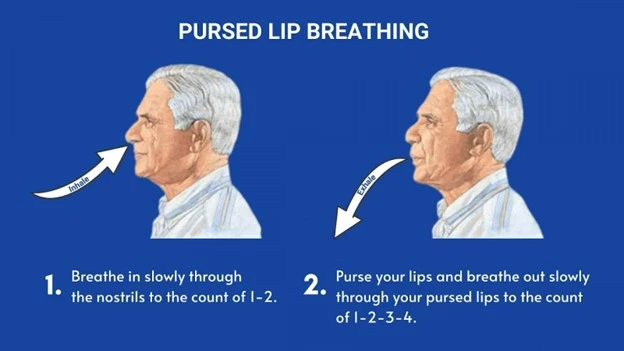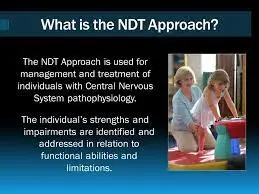The Ultimate Guide to Speech Therapy
What is a Speech Therapy?
Speech therapy is the diagnosis and treatment of communication problems including speech disorders. It is carried out by speech-language pathologists, or SLPs as they are more commonly called.
To improve communication, speech therapy techniques are used. These could include language intervention activities, articulation therapy, and other things, depending on the type of speech or language disability.
Speech therapy may be necessary for speech issues that appear in children or adults who have speech impairments caused by illness or trauma, such as stroke or brain injury.
Working with individuals of all ages, from young toddlers to adults, speech therapists, also known as speech-language pathologists, treat a variety of communication issues, such as stuttering, voice abnormalities, articulation disorders, and language delays.
Why do you need speech therapy?
Many speech and language difficulties can be corrected with speech therapy.
Articulation disorders
The inability to speak certain words correctly is known as an articulation disorder. A child with this speech disorder may add, alter, drop, or distort word sounds. One example of word distortion is saying “thith” rather than “this.”
Fluency disorders.
The rhythm and flow of speaking are affected by a fluency problem. Stuttering and cluttering are examples of fluency problems. A stutterer has trouble making sounds, and as a result, they may block or interrupt their speech or repeat words whole or in parts. A messy individual usually speaks quickly and uses a lot of word combinations.
Resonance disorders.
Resonance disorders result from abnormalities in the vibrations that influence voice quality caused by blocked or impeded normal airflow in the nasal or oral canals. It could also result from the velopharyngeal valve closing incorrectly. Resonance abnormalities are often associated with cleft palate, neurological disorders, and tonsil hypertrophy.
Receptive disorders.
It is challenging for someone with receptive language disorder to comprehend and assimilate the words of others. This could make it hard for you to follow directions, have a limited vocabulary, or make you seem disinterested when someone is speaking. Autism, hearing loss, brain damage, and other language problems can all lead to receptive language dysfunction.
Expressive disorders.
An indication of expressive language dysfunction is trouble communicating or conveying information. If you have an expressive issue, you could have trouble constructing proper sentences, such as by utilizing the incorrect verb tense. It has been connected to developmental disorders such as Down syndrome and hearing loss. A medical condition or brain injury could also be the reason.
Cognitive-communication disorders.
Communication problems caused by injury to the part of the brain involved in mental processes are referred to as cognitive communication disorders. It could lead to issues with problem-solving, recall, and speaking or listening. The cause may be biological, such as aberrant brain development, certain neurological conditions, brain trauma, or stroke.
Aphasia.
This learned communication impairment affects a person’s ability to communicate and comprehend others. It often also affects a person’s ability to read and write. The most common cause of aphasia is stroke, though it can also result from other brain disorders.
Dysarthria.
This disorder is characterized by slow-paced or slurred speech due to a lack of control or strength in the speech muscles. The most frequent causes are neurological disorders that produce facial paralysis or weakness of the tongue and throat, such as multiple sclerosis (MS), amyotrophic lateral sclerosis (ALS), and stroke.
What signs indicate a need for Speech Therapy?
If your doctor believes you or your child may have a speech impairment, they will recommend some basic testing. These tests will help determine the underlying reason of any communication issues.
For example, if your child has trouble communicating, your child’s doctor may suggest a hearing test from an audiologist. If your child passes the hearing exam, they might need a speech-language pathologist.
What is the ideal Speech Therapy age?
Anyone who needs help with their language or speaking skills can benefit from speech therapy. There is no ideal age or right time to ask for help. Adult and pediatric speech therapy is helpful for those with communication disorders.
Studies show that early intervention and practice with a family member at home are most beneficial for children who need speech therapy.
What activities are done in speech therapy?
Play, such as language-based board games or sequencing exercises, is typically a part of speech therapy for kids.
Speech therapy for adults typically focuses on restoring or enhancing certain skill sets, such as enhancing brain-mouth coordination.
Activities for speech therapy include, for instance:
- Exercises for the tongue and mouth: Your speech therapist will demonstrate movements and exercises to help you develop your tongue and mouth. Your tongue can be trained to move in coordinated patterns with these exercises.
- Facial movements: You can enhance your motor skills by managing your facial expressions. Your therapist may ask you to pucker your lips or grin before letting your face relax.
- Reading out loud: Reading aloud can improve the communication between your mouth and brain if your speech impairment makes it difficult for you to move your tongue and mouth correctly.
- Playing word games: Research has demonstrated that word searches, crossword puzzles, and memory games help preserve cognitive function and enhance critical thinking.
What takes place in Speech Therapy?
Before starting speech therapy, an SLP will usually do an evaluation to identify the kind of communication problem and the best treatment plan.
Speech therapy for children
A classroom, small group, or one-on-one setting may be used for speech therapy, depending on the type of speech impediment your kid has. Depending on your child’s needs, age, and illness, different speech therapy exercises and activities are used.
Encourage language development through play, conversation, and language intervention using books, images, and other materials.
Teach a youngster the proper syllables and sounds to create while they play in an age-appropriate environment.
Assign homework and provide ways for the child, parent, or caregiver to complete speech therapy at home.
Speech therapy for adults
An assessment that establishes your needs and the best course of action is also the first step in adult speech therapy. Exercises in speech therapy may help adults with their language, speech, and cognitive communication abilities.
If swallowing problems have been caused by an injury or a medical condition like Parkinson’s disease or oral cancer, retraining swallowing function may also be a component of treatment.
Activities could include:
- Resolving problems, arranging and preserving data, and performing further cognitive communication-related duties
- Conversational techniques that improve social communication
- Breathing techniques to improve oral muscle strength and resonance
Many resources are available if you wish to try speech therapy activities at home, including:
- Applications for speech treatment
- Workbooks for speech treatment as well as games and toys for language development, such as flip cards and flash cards.
How much time will speech therapy take you?
How long someone need speech therapy depends on a number factors, including:
- Their age, the kind of speech impediment, and its severity
- Frequency of underlying health condition therapy
- Treatment for an underlying medical condition
- Some speech difficulties begin in childhood and improve with age, while others last until adulthood and necessitate continuous therapy and care.
- A communication problem caused by a stroke or other illness may improve with therapy and when circumstances improve.
To what extent does Speech Therapy work?
Depending on the age group and ailment being addressed, speech therapy has varying success rates. The results of your speech therapy sessions may also be impacted by their scheduling.
It has been shown that the most successful speech therapy for young children includes early intervention and practice with a parent or caregiver at home.
What benefits does speech therapy offer?
There are numerous benefits to speech therapy, including:
- heightened self-assurance.
- greater autonomy.
- enhanced comprehension and communication of ideas, feelings, and concepts.
- Early childhood education in preparation for school.
- enhanced vocal quality.
- early language competency.
- enhanced swallowing abilities.
- an improved quality of life.
Prognosis:
The severity of the speech or language disorder, age at intervention, underlying medical disorders, and therapy consistency are some of the variables that affect the prognosis of speech therapy. Results are greatly enhanced by early intervention and consistent practice, particularly for kids with developmental speech impairments.
While people with neurological or cognitive disorders may need long-term therapy with variable degrees of improvement, many people with mild to moderate speech difficulties make significant improvements. When customized to each patient’s needs, speech therapy generally has a good prognosis, with many people experiencing a notable improvement in their communication abilities.
Everybody has different needs. As people age, certain speech impairments get better, while others need years of speech therapy. If you have a speech disability caused by a medical illness, your speech and language abilities might get better as you heal from the underlying problem.
The duration of speech therapy is determined by:
- Your age.
- the kind of speech impairment.
- How much your communication skills are affected by the speech impairment.
- if you have an underlying medical ailment that has to be healed.
- How frequently do you go to speech therapy.
Conclusion:
In order to address speech and language impairments, improve communication skills, and raise general quality of life, speech therapy is essential. A number of variables, including individual needs, consistency, and early intervention, affect how well therapy works. While some people recover fully, others might need constant supervision and assistance.
Speech therapy may greatly enhance social communication, language comprehension, fluency, and speech clarity with the correct techniques and commitment, enabling people to communicate successfully in both their personal and professional lives.
Speech therapy can be used to treat a broad range of speech and language abnormalities and impairments in both adults and children. Early usage of speech therapy helps improve self-confidence and communication.
If you or your kid struggle with communication, ask your healthcare practitioner about making an appointment for a speech-language pathologist evaluation. You can improve your independence, self-esteem, and quality of life with speech therapy.
Speech treatment requires practice, time, and effort. Have patience and acknowledge all of your accomplishments. If you feel like you’re having trouble, talk to your speech therapist and acknowledge your accomplishments.
FAQs
How much does speech treatment cost?
Your ability to swallow is evaluated with a fiberoptic endoscopic evaluation of swallowing (FEES) test. A speech-language pathologist (SLP) inserts a small, flexible device via your nose during the process. As you swallow, the SLP then observes certain areas of your throat.
What is the duration of speech therapy?
Depending on how serious your child’s needs are, it takes a lot of effort spread over several months or even years. Nonetheless, improvement or total repair is achievable with persistence. Additionally, speech therapy can be more successful when parents participate, for example, by having their children complete activities at home.
To what extent does speech therapy work?
The ideal choice for people who want to boost their confidence and improve their speech and language abilities is speech therapy, which generally has a high success rate among both adults and children.
Is speech treatment too late at 7?
This neuroplasticity is used in speech therapy to assist people in overcoming communicative barriers and making long-lasting progress. Although early intervention is preferable, assistance is always accessible: It’s never too late to get help, even though early intervention has many benefits.
At what age is speech treatment most effective?
Although most speech problems arise between the ages of 18 months and 2 years, it’s wise to get in touch with a speech therapist as soon as possible if you have any worries.
What is the role of a speech therapist?
For children and adults who struggle with eating, drinking, swallowing, or communicating, speech and language therapists offer life-changing care, support, and treatment. You will assist those who struggle to talk and communicate due to physical or psychological issues.
Can a youngster who has a speech delay overcome it?
It could not indicate a problem if your child’s speech and language development is delayed. However, consult your physician if your child is experiencing difficulties. Testing may be recommended by the physician. With the help of therapies like speech therapy, a kid can overcome a variety of speech and language issues.
What does speech therapy entail?
By strengthening the muscles involved in speaking and swallowing, speech therapy helps patients become more proficient communicators. Additionally, it can aid with stuttering, voice quality, and reading and writing.
How many speech therapy sessions are there each week?
At the very least, your speech therapist will probably suggest scheduling appointments every two weeks to begin. The development of speech and language skills requires practice and repetition. In the end, the more you use these skills, the faster you will finish speech therapy.
For what length of time is speech treatment appropriate?
Yes, depending on the child’s current project. A speech-language pathologist may see children once a week or many times a week. Treatment may last a few weeks, a few months, or a few years.
Is it too late to start speech treatment at age 4?
There is no minimum age limit for speech therapy. Pediatric speech therapists work with newborns until the age of eighteen, so it’s never too late! If you’re unsure whether it might be helpful to take your child to see a pediatric speech therapist, keep reading.
When does speech reach its full development?
three to four years
uses most of the speech sounds, while some of the harder ones, such l, r, s, sh, ch, y, v, z, and th, might be garbled. To fully understand these noises, a child may need to be 7 or 8 years old.
To what extent does speech therapy work?
Given its high success rate with both adults and children, speech therapy is generally the best option for anyone looking to improve their speech and language skills as well as their confidence.
At what age is speech treatment most effective?
Speech therapy should begin as soon as a child shows signs of a speech or language impediment. Children, especially toddlers, should begin speech therapy between the ages of two and five.
What is the role of a speech therapist?
Speech-language pathologists, or SLPs for short, are educated in the study of human communication, including its abnormalities and development. Speech, language, cognitive-communication, and oral/feeding/swallowing skills are assessed by SLPs. After that, they can decide on the best way to deal with the problem.
References
- Physiotherapist, N. P.-. (2023, December 25). Speech therapy – Improve your communication skills. Mobile Physiotherapy Clinic. https://mobilephysiotherapyclinic.in/speech-therapy/
- Professional, C. C. M. (2025, February 14). Speech therapy. Cleveland Clinic. https://my.clevelandclinic.org/health/treatments/22366-speech-therapy
- Santos-Longhurst, A. (2019, May 9). What is speech therapy? Healthline. https://www.healthline.com/health/speech-therapy
